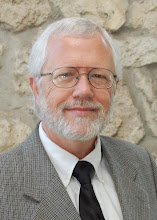What a list most of us would have -- from prejudice to disasters to cancer to paper cuts to brussels sprouts. But McKinley Philips has other questions. Like what happened to his young daughter after her kidnapping. And why he suffered as a boy under his brutal father's alcoholic rages.
He gets some answers -- but more often general reassurance of God's help and companionship -- in The Shack, a fanciful novel that has somehow caught so much reader attention, it's spent the better part of a year on the New York Times bestseller list.
The book has all the marks of a good novel: pacing, setting, atmosphere, natural-sounding dialogue. Well, most of the time on that last item. More on that l
 ater.
ater.Mack's daughter Missy goes missing on a camping trip in the Oregon mountains, and no number of volunteers or state troopers can find her. Early suspicion falls on a known child killer, sending Mack into a chronic depression.
His grief is cut short by an unsigned note in his mailbox -- which he suspects is from the deity -- summoning him to the abandoned shack that held the last evidence of the girl. Surprise #2 -- and #3 and #4 -- waiting for him at the shack are God the Father as a large, motherly black woman and God the Holy Spirit as an Asian woman in a cloudlike robe. At least God the Son is a more traditional Middle Eastern man.
They take turns counseling Mack, alternately comforting him and confronting him with his attitudes and life decisions. How the sessions change Mack, and what they have to do with Missy, take up the rest of the 248-page book.
Much of it is standard conservative Christianity: God loves you and looks after you, even when you don't think he/she does. There's some gender bending, of course, but that kind of license should upset no one who has read C. S. Lewis' novels.
What hurts the book is the preaching, clumsily disguised as dialogue. It's a truism that the longest speeches in a book are the opinions of the author. And this book puts long speeches in the mouth of one or another of the Trinity.
Some of it is comforting, like how God brings good out of bad: "Mack, just because I work incredible good out of unspeakable tragedies doesn't mean I orchestrate the tragedies." Some of it, well, depends on your own outlook. Like when Jesus condemns organized religion -- along with politics and economics -- as part of "the man-made trinity of terrors that ravages the earth and deceives those I care about."
It goes on like this for nearly a hundred pages -- more absorbing than it may sound, but still a lot of indoctrination. For those who persevere, Young does paint a vivid picture of the spiritual world through God's eyes, as well as a vision of reconciliation and freedom from guilt.
Young says the book is actually an autobiography; the shack is an allegory for what went on in his own soul over a painful 11 years of prayer and introspection. And from the thousands of responses posted on his Web site, the book speaks to a lot of people.
So maybe he does have room to talk about spirit and emotion. Do you have to swallow it all? Of course not. But as Jesus said, "He who has ears to hear, let him hear." Or if he has eyes to read ...

No comments:
Post a Comment